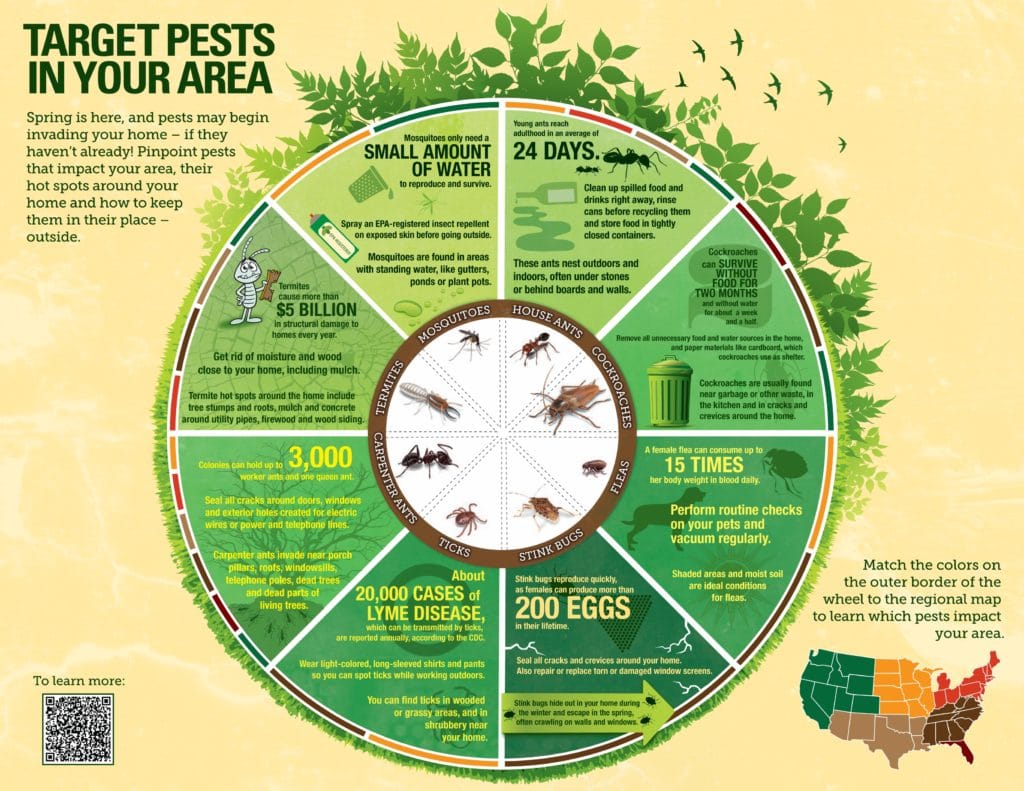Pest-Proofing Your Yard: Tips For Maintaining Outside Parasites At Bay
Pest-Proofing Your Yard: Tips For Maintaining Outside Parasites At Bay
Blog Article
Content Written By-Thorpe Fyhn
Imagine your yard as a refuge, a location of serenity and elegance. Nevertheless, best way to control ants of outside parasites can quickly interrupt this ideal picture. What happens if there were basic yet efficient methods to keep these unwelcome site visitors away and protect your garden sanctuary? By complying with a few practical tips and applying all-natural techniques, you can produce an unified outdoor area where your plants can prosper undisturbed.
Natural Pest Deterrents
To maintain insects far from your yard normally, plant aromatic herbs like mint and lavender. These great smelling plants not just include appeal to your garden yet additionally serve as effective parasite deterrents. Pests like mosquitoes, flies, and even some garden-damaging insects are repelled by the solid aromas sent out by these herbs. Simply positioning them strategically around your yard can assist produce a natural barrier versus undesirable insects.
Along with mint and lavender, take into consideration growing various other natural herbs like rosemary, basil, and lemongrass to better boost your yard's pest-proofing capabilities. These natural herbs not only function as all-natural repellents but also have actually the added advantage of working in cooking or crafting self-made remedies.
Strategic Plant Positioning
Consider the format of your yard and the kinds of plants you have to purposefully put them for optimum pest-proofing performance.
Start by organizing plants with comparable resistance to pests together. By doing this, you can produce a natural barrier that hinders insects from spreading out throughout your yard.
Additionally, positioning pest-repelling plants like marigolds, lavender, or mint near even more vulnerable plants can assist shield them. High plants, such as sunflowers or corn, can work as a guard for much shorter plants versus parasites like rabbits or ground-dwelling pests.
Keep in mind to leave adequate area between plants to boost air flow and lower the risk of illness that pests may lug.
Moreover, think about planting strong-smelling natural herbs like rosemary or basil near at risk plants to confuse pests' senses and make it harder for them to situate their targets.
Efficient Insect Control Techniques
For combating yard pests successfully, applying a multi-faceted insect control strategy is necessary. Beginning by urging all-natural predators like birds, ladybugs, and praying mantises to assist maintain pest populations in check. Introducing plants that bring in these advantageous pests can help in insect control. Furthermore, exercising great yard health by removing particles and weeds where pests might conceal can make your garden much less congenial to unwanted visitors.
Think about making use of physical barriers such as row cover materials or netting to protect at risk plants from bugs like caterpillars and birds. Applying organic chemicals like neem oil or insecticidal soap can additionally be effective versus specific insects while being less hazardous to beneficial pests and the environment. It's vital to rotate your crops each period to avoid the accumulation of bug populations that target certain plants.
Regularly examine your plants for signs of bug damage so you can take action without delay. By incorporating these methods and remaining vigilant, you can properly manage garden parasites and enjoy a growing, pest-free yard.
Conclusion
So, there you have it - with the right methods, you can keep pesky outdoor insects away from your garden and help your plants flourish.
Did you recognize that growing mint has been shown to push back mosquitoes and various other insects, lowering the requirement for dangerous chemicals by as much as 60%?
By incorporating all-natural deterrents and wise planting strategies, you can create a lovely and pest-resistant yard sanctuary for you to enjoy.
